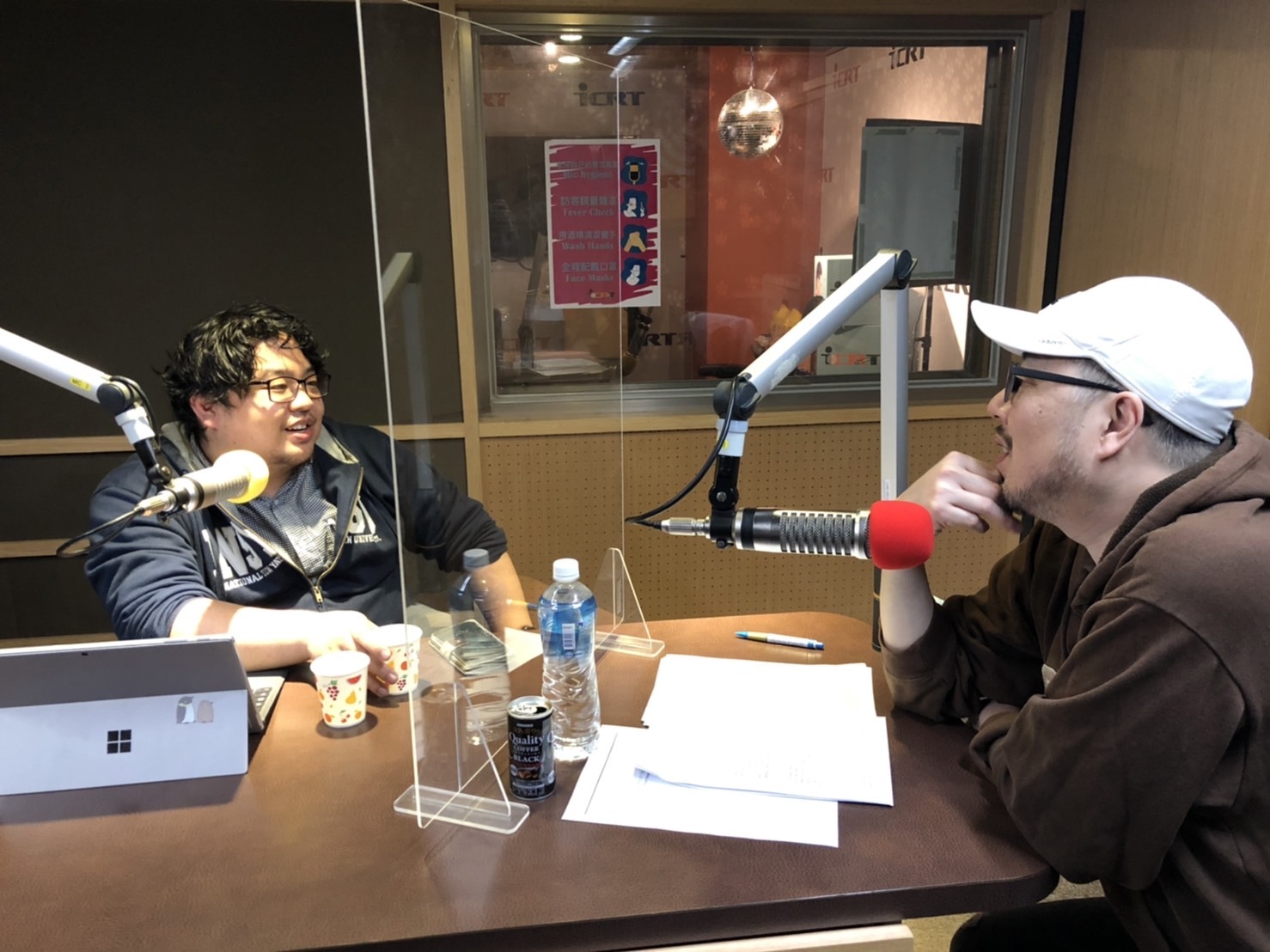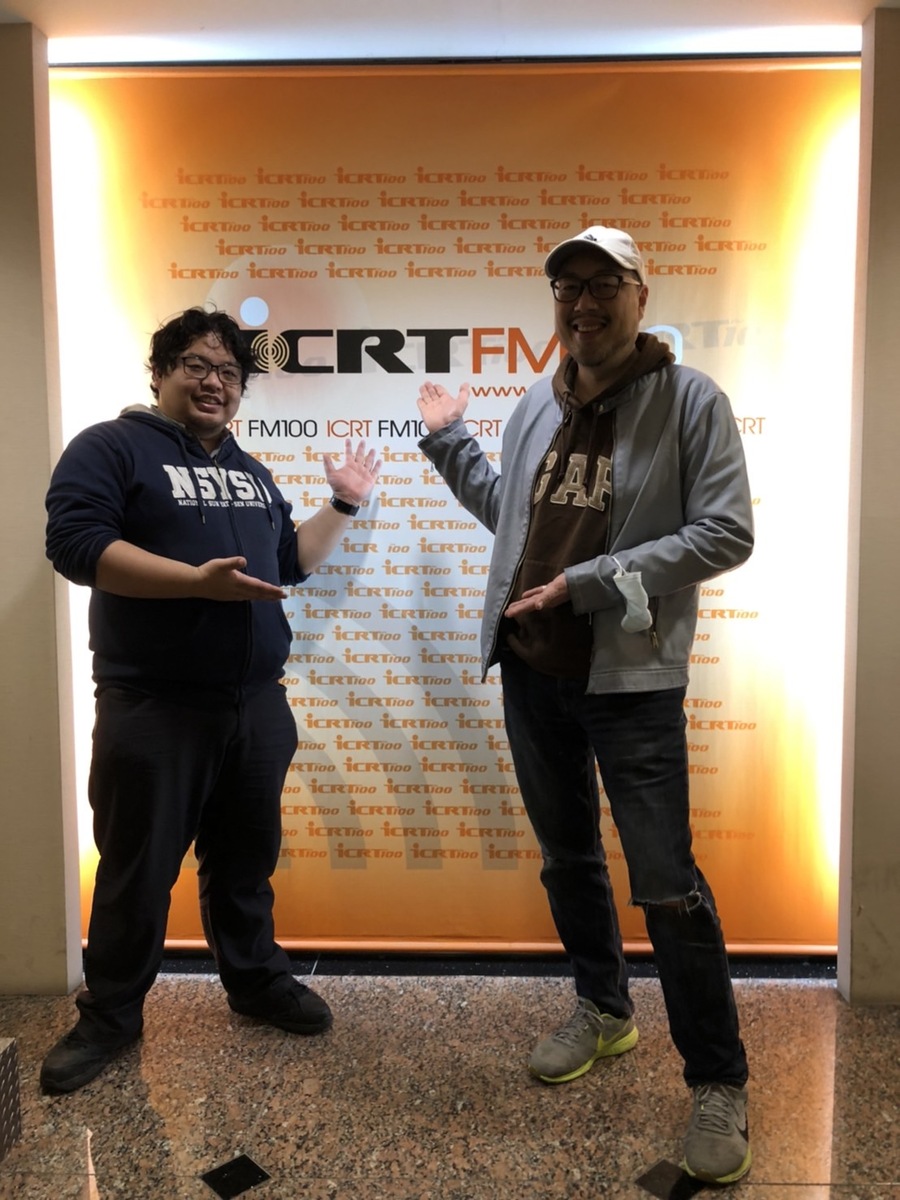Assistant Professor Cheng-chau Chiu on NSYSU’s bilingualization policy in exclusive interview for ICRT


2022-04-08
(Provided by Recruitment Strategic Development Office) National Sun Yat-sen University was selected as one of the key cultivation schools of the Ministry of Education's Program on Bilingual Education for Students in College and is actively building a bilingual learning environment, attracting international professionals, nurturing internationally competitive talents, and moving toward the goal of becoming an international bilingual university. Assistant Professor Cheng-chau Chiu of NSYSU’s Department of Chemistry gave an exclusive interview for ICRT (International Community Radio Taipei) on how the University promotes EMI (English Medium Instruction) education and the present situation of the recently launched EMI undergraduate programs.
Professor Chiu said that aside from learning in an English environment, a more important goal of EMI is to help students develop an international perspective and get familiar with how to work with people from different countries and cultural backgrounds. In line with Taiwan’s Bilingual Nation 2030 Policy, NSYSU hopes to establish English-language programs in all its departments. In addition, NSYSU also actively encourages students to use the University’s resources and apply for scholarships, exchange programs, or dual-degree programs to study overseas to increase their international exchange experience and enhance their international competitiveness.
He also mentioned that to create a bilingual learning environment, NSYSU holds sessions of English Table – a regular activity in English where students can chat with foreign exchange students outside of the classroom to enhance their language skills and learn about each other’s culture.
In the academic year 2021-2022, NSYSU launched English-language undergraduate programs at three departments: the Department of Electrical Engineering, the Department of Mechanical and Electro-Mechanical Engineering, and the Department of Chemistry. In 2022, the University will establish English-taught programs at the Department of Applied Mathematics, the Department of Physics (with a specialization in quantum technology), the Department of Marine Biotechnology and Resources. In addition, there will be an International Business Bachelor Program at the College of Management. Professor Chiu has been involved in the planning and teaching of the EMI program at the Department of Chemistry and could report some positive results from his own observation. Initially, the faculties involved in the EMI programs had expressed concerns that the students' English proficiency may affect the learning outcomes. However, it has been found that there was no significant difference between the academic performance of students in EMI programs and non-EMI programs.
"Don’t be scared that the courses are being taught in English," said Chiu to high school students and their parents interested in EMI programs. He took the situation at the Department of Chemistry as an example: even if a student is not in an EMI program, he or she will inevitably need to deal with English-language textbooks. Furthermore, after graduation, there are high chances of finding an occupation where one is working within an international team. Therefore, English communication skills are essential for students during their studies and will also be helpful in their future careers. Thus, practicing the skills as early as possible can bring significant advantages for one’s future. In addition, NSYSU will also provide resources to help students overcome possible learning difficulties. Although compared to students taking their programs in Chinese, those choosing the EMI program may have to put in more effort, but they will enjoy the fruits of their hard work. Professor Chiu, who grew up in Germany himself, said that the University has already hired about 50 professors with an international background. Aside from that, a very large part of the domestic professors at NSYSU have spent parts of their education abroad. Thus, they know about the potential problems that students may encounter when studying in a foreign language from their personal experience and can help the students face the challenges in their academic career.
You can listen to the interview on the NSYSU Podcast channel, and other major platforms: Firstory, Spotify, KKBOX, Google Podcast, Apple Podcast, Pocket Casts, SoundOn. Link to the interview on Spotify: https://open.spotify.com/episode/04gAWgxx5xKFI7iUgSRlGh
(Edited by Public Affairs Division)
(Provided by Recruitment Strategic Development Office) National Sun Yat-sen University was selected as one of the key cultivation schools of the Ministry of Education's Program on Bilingual Education for Students in College and is actively building a bilingual learning environment, attracting international professionals, nurturing internationally competitive talents, and moving toward the goal of becoming an international bilingual university. Assistant Professor Cheng-chau Chiu of NSYSU’s Department of Chemistry gave an exclusive interview for ICRT (International Community Radio Taipei) on how the University promotes EMI (English Medium Instruction) education and the present situation of the recently launched EMI undergraduate programs.
Professor Chiu said that aside from learning in an English environment, a more important goal of EMI is to help students develop an international perspective and get familiar with how to work with people from different countries and cultural backgrounds. In line with Taiwan’s Bilingual Nation 2030 Policy, NSYSU hopes to establish English-language programs in all its departments. In addition, NSYSU also actively encourages students to use the University’s resources and apply for scholarships, exchange programs, or dual-degree programs to study overseas to increase their international exchange experience and enhance their international competitiveness.
He also mentioned that to create a bilingual learning environment, NSYSU holds sessions of English Table – a regular activity in English where students can chat with foreign exchange students outside of the classroom to enhance their language skills and learn about each other’s culture.
In the academic year 2021-2022, NSYSU launched English-language undergraduate programs at three departments: the Department of Electrical Engineering, the Department of Mechanical and Electro-Mechanical Engineering, and the Department of Chemistry. In 2022, the University will establish English-taught programs at the Department of Applied Mathematics, the Department of Physics (with a specialization in quantum technology), the Department of Marine Biotechnology and Resources. In addition, there will be an International Business Bachelor Program at the College of Management. Professor Chiu has been involved in the planning and teaching of the EMI program at the Department of Chemistry and could report some positive results from his own observation. Initially, the faculties involved in the EMI programs had expressed concerns that the students' English proficiency may affect the learning outcomes. However, it has been found that there was no significant difference between the academic performance of students in EMI programs and non-EMI programs.
"Don’t be scared that the courses are being taught in English," said Chiu to high school students and their parents interested in EMI programs. He took the situation at the Department of Chemistry as an example: even if a student is not in an EMI program, he or she will inevitably need to deal with English-language textbooks. Furthermore, after graduation, there are high chances of finding an occupation where one is working within an international team. Therefore, English communication skills are essential for students during their studies and will also be helpful in their future careers. Thus, practicing the skills as early as possible can bring significant advantages for one’s future. In addition, NSYSU will also provide resources to help students overcome possible learning difficulties. Although compared to students taking their programs in Chinese, those choosing the EMI program may have to put in more effort, but they will enjoy the fruits of their hard work. Professor Chiu, who grew up in Germany himself, said that the University has already hired about 50 professors with an international background. Aside from that, a very large part of the domestic professors at NSYSU have spent parts of their education abroad. Thus, they know about the potential problems that students may encounter when studying in a foreign language from their personal experience and can help the students face the challenges in their academic career.
You can listen to the interview on the NSYSU Podcast channel, and other major platforms: Firstory, Spotify, KKBOX, Google Podcast, Apple Podcast, Pocket Casts, SoundOn. Link to the interview on Spotify: https://open.spotify.com/episode/04gAWgxx5xKFI7iUgSRlGh
(Edited by Public Affairs Division)
Click Num:
Share
